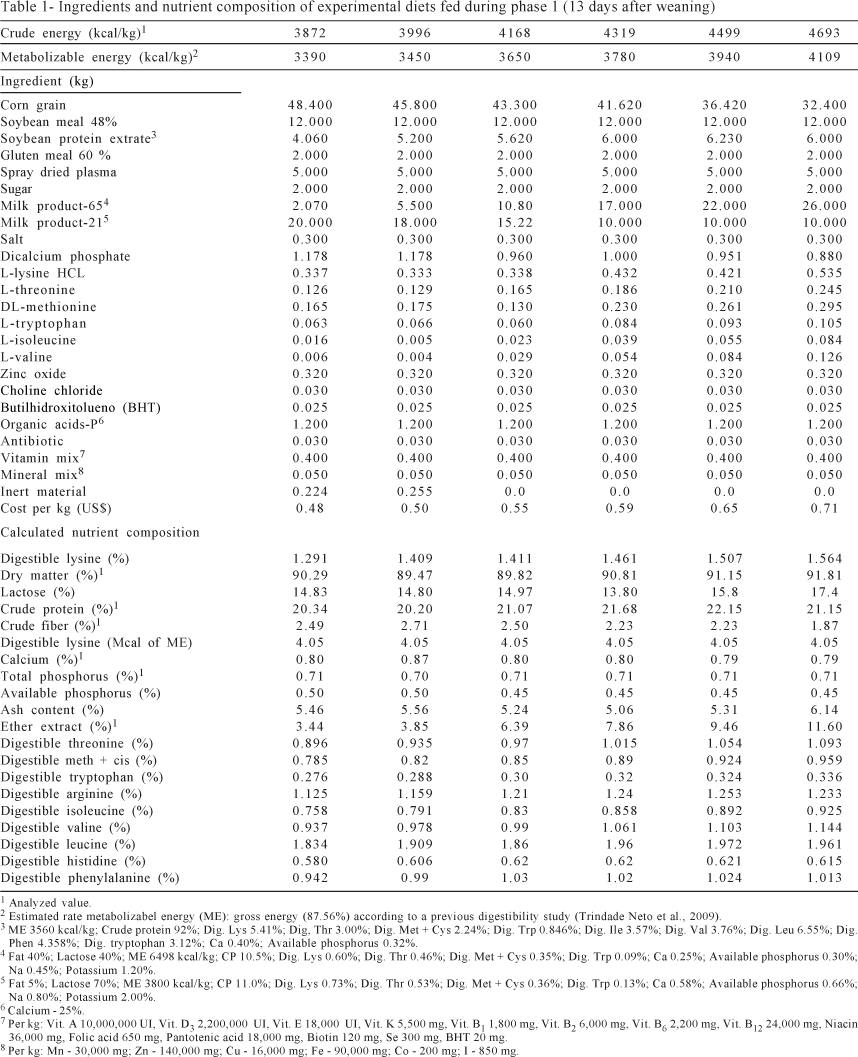It was evaluated the effects of metabolizable energy (ME) and digestible lysine (dLYS) densities on performance and body composition of weaned piglets. The study used 114 piglets weaned at 7.4 ± 0.80 kg, out of which 108 were allotted in the nursery and 6 were slaughtered on the weaning day to determine comparative data of body chemical composition. Six nutrients densities were stipulated from a previous study based on the highest nitrogen retention, maintaining the following ME:LYS relationship in the experimental diets: 3,390:1.291; 3,450:1.409; 3,650:1.411; 3,780:1.461; 3,940:1.507; and 4,109 kcal/kg ME:1.564% dLYS. The experimental diets were offered for 13 days when the piglets reached 12.986 ± 1.449 kg of body weight. The probable residual effects of nutritional density on the subsequent performance of the piglets were evaluated. At the end of initial phase 1, six piglets from each density were slaughtered to determine their chemical composition in body fractions and empty body. There was no significant influence of nutritional levels on the performance of the piglets at the end of the evaluation. The results of food conversion and body composition confirm the level indicated in the previous study, 4 g dLYS/Mcal of ME. The increase of energy and lysine densities confirms the need for a correct relationship among both of them to assure better performance of the piglets at the beginning of the growing phase.
digestible amino acid; performance; swine; weaned






